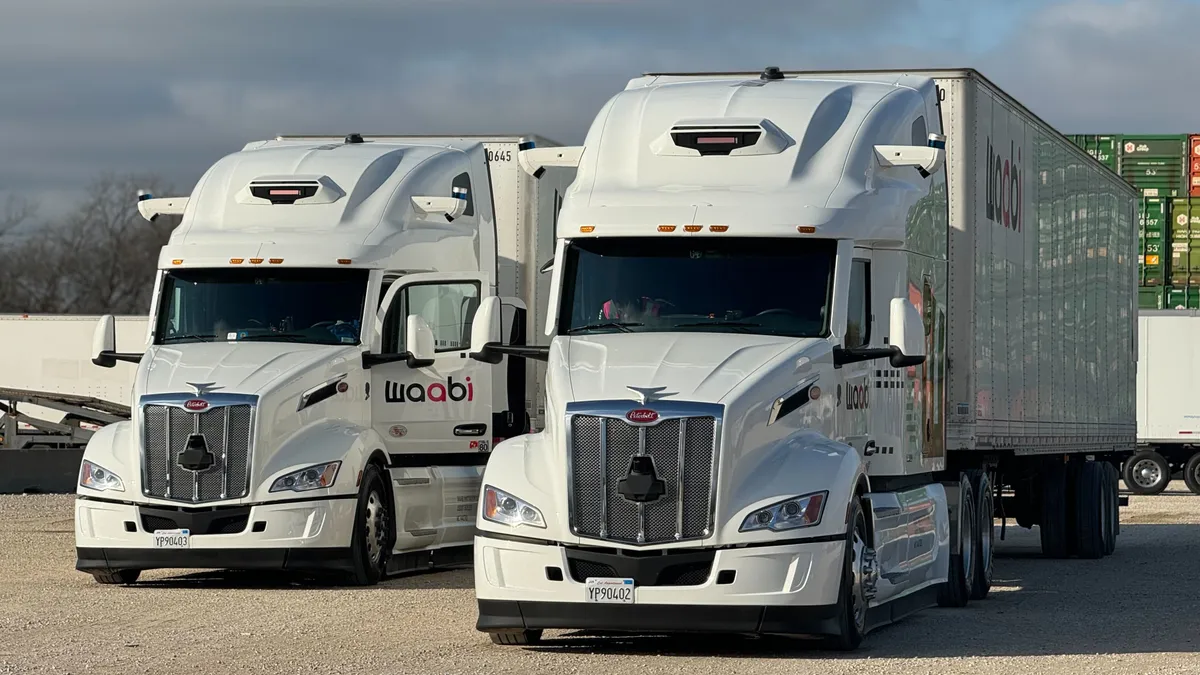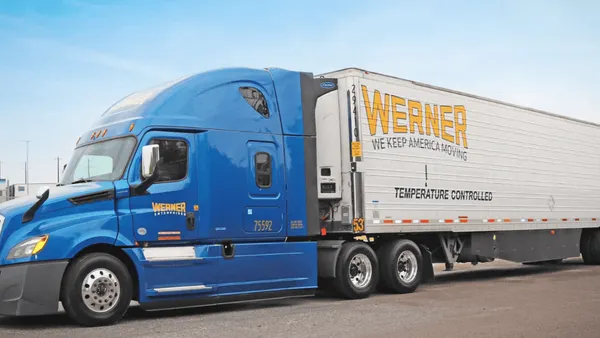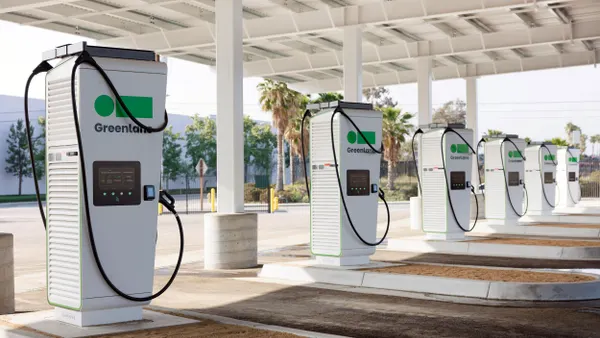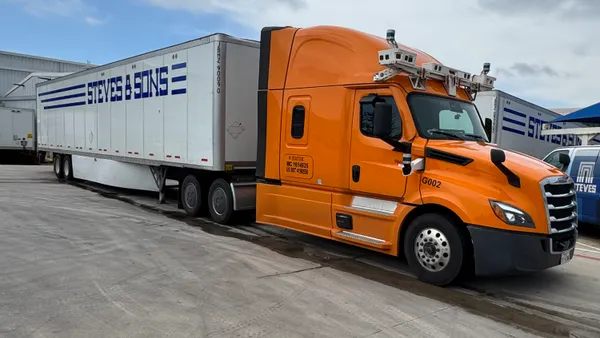Dive Brief:
- Self-driving tech company Waabi plans to launch fully driverless autonomous trucks in 2025, per a news release also stating the industry is reaching a new frontier in technology.
- The announcement coincides with an injection of capital, $200 million, led by Uber and venture capital firm Khosla Ventures. The new money will help to grow commercial operations as well as its workforce in Canada and the U.S.
- “Waabi is well positioned to launch fully driverless trucks in Texas, expand driverless operations to new geographies, and transform the supply chain,” the company said in the release.
Dive Insight:
When Waabi launched its self-driving trucking plans out of Toronto in 2021, the company noted AI could make a difference. With a surge in funding, the company is now highlighting how it expects to deploy generative AI in trucking.
Founder and CEO Raquel Urtasun said a blog post that for the AV industry, testing millions of miles is “nowhere near what would be required to provide the rigorous evidence necessary for a comprehensive safety case.”
While the company has been testing its technology on public roads in Texas through commercial runs with partners, Waabi also has been developing its technology, particularly with simulations.
Humans engineering a self-driving system can create an overcomplicated approach that doesn’t generalize to all situations that happen on the road, Urtasun said in a video. Instead, Waabi seeks to shift away from that approach by “empowering a generative AI model to learn from the unsupervised world. This means that there is no human intervention.”
Urtasun said that the company is developing a generative AI model that observes the environment, learns what’s appropriate and responds to new and unfamiliar situations.
“Waabi has pioneered a single end-to-end AI system that is capable of human-like reasoning, enabling it to generalize to any situation that might happen on the road, including those it has never seen before,” the company said in the news release.
With the technology able to reason, “the system requires significantly less training data and compute resources compared to other end-to-end approaches,” the company said.
Competitors Aurora Innovation and Kodiak Robotics are also pursuing plans to remove safety drivers, anticipating Texas launch lanes as an initial focal point.












